Is Micellar Water Good for Your Skin? Here’s What Beauty Experts Say

For most people, having a skincare routine means sticking to the same products day in and day out. That’s why it’s so important to get the lineup right. At a bare minimum, your everyday routine should typically include a facial cleanser, antioxidant serum, light moisturizer, and high-SPF sunscreen. Yet, increasingly, experts suggest adding micellar water to your skincare plan. Used either in the place of a traditional cleanser or in addition to it, micellar water benefits the skin by removing impurities, preventing skin irritation, and preserving your skin’s natural oils.
Long popular in France and finally gaining ground here in the U.S., experts say there’s a wide range of ways that the product can enhance your current routine. But if you’ve never tried it, you may be wondering—is micellar water good for your skin? The short answer is yes, though experts say that using it differently depending on your skin type can make all the difference. These are the top five reasons you need to add micellar cleansing water to your skincare plan and how to use it for optimal results.
RELATED: 5 Reasons You Should Add Petroleum Jelly to Your Skincare Routine After 50.
What Is Micellar Water?
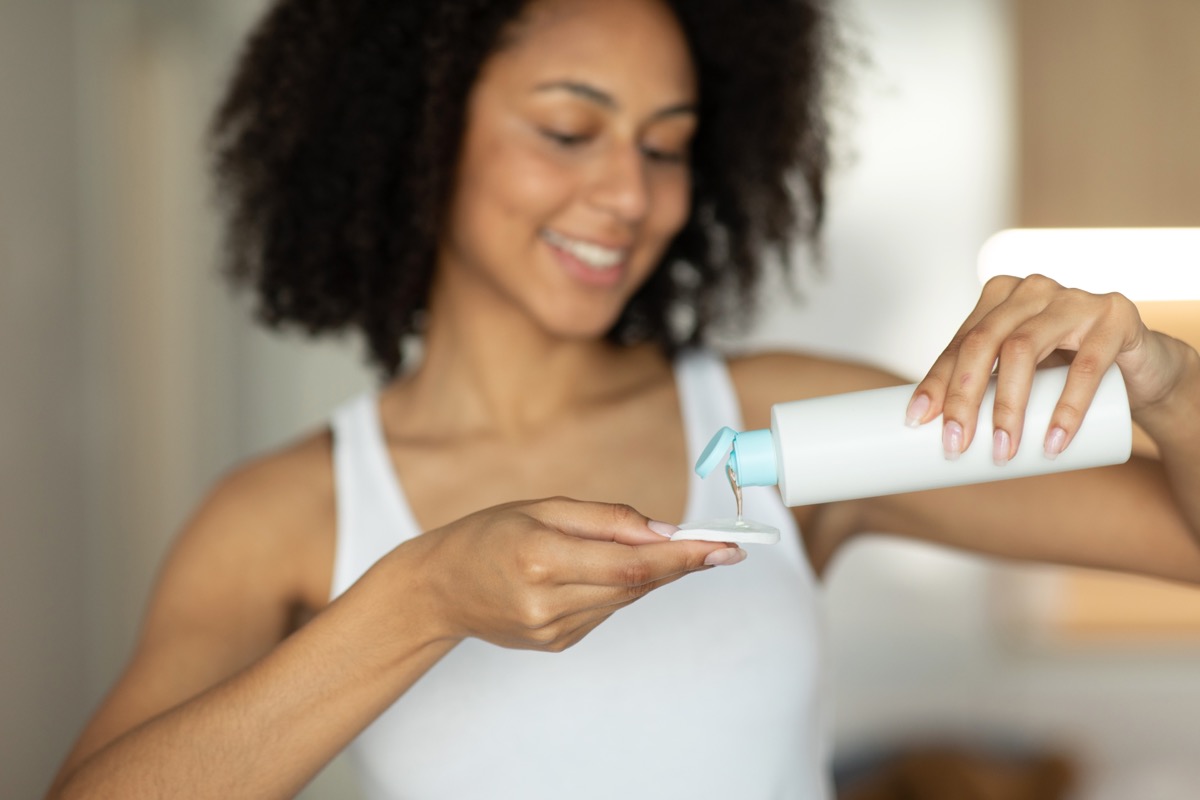
Micellar water is a cleansing product in which the main active cleansing components are micelles suspended in water.
“Micelles are tiny chemical structures aggregated of lipid molecules, capable of pulling dirt and oil-based impurities from the skin’s surface,” explains Valerie Aparovich, a biochemist and certified cosmetologist-esthetician at OnSkin.
Formulated with mild detergents, purified water, and moisturizers, micellar water “doesn’t require intense physical friction against the skin to work to its full potential, so it’s unlikely to stress out sensitive skin and trigger adverse reactions such as irritation or inflammation,” Aparovich notes.
“Think of micellar water as hydrating soft water,” adds Rachel Lozina, a master esthetician, laser technician, and founder of Blue Water Spa in Oyster Bay, New York. “It conditions the skin and attracts dirt and oil from the skin and leaves water-attracting molecules behind.”
RELATED: Dermatologists Share the Best Drugstore Skincare Products: “Anything More Is Not Necessary.”
How Does Micellar Water Work?
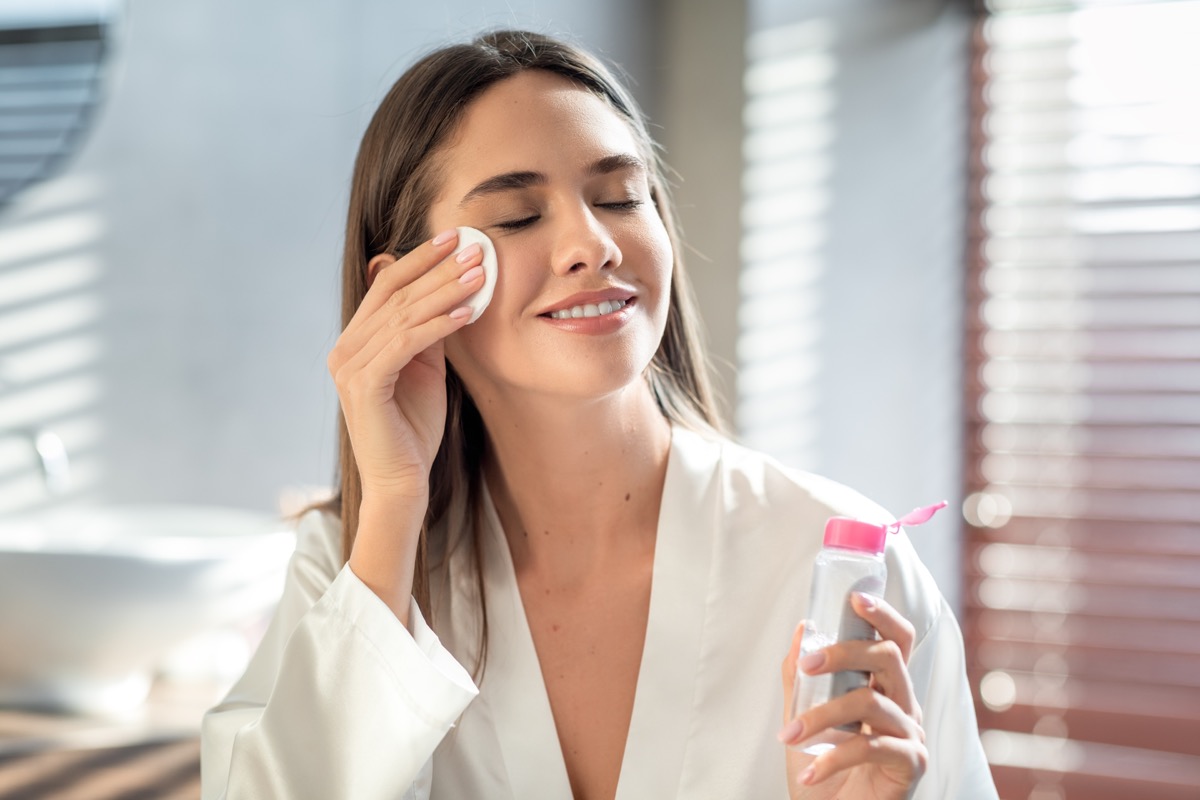
Micellar water cleanses away impurities and removes makeup, dirt, and oil, all while protecting and preserving your natural skin hydration. Knowing how to use micellar water properly can ensure that you’re getting the very best clean every time.
“The standard method involves wiping the face with a cotton pad soaked in micellar water and changing as many cotton pads as it takes until the last one remains white. When applied to the skin surface, micelles surround dirt particles (including external impurities such as makeup and environmental pollutants and those related to the skin’s natural processes such as sebum and sweat) and lift them away by attracting them to a cotton pad,” Aparovich explains.
She adds that unlike other types of cleansers, such as foams, gels, or hydrophilic oils, micellar waters can be used as a multi-purpose makeup remover.
“It helps remove the residue from complexion products such as foundations, concealers, setting powders, and more. It is also gentle enough to be used on delicate areas such as around the eyes and lips, helping to wash away mascaras, eyeliners, eyeshadows, and lipsticks without causing discomfort or inducing the risk of irritation and stinging,” the esthetician explains.
RELATED: Never Buy Skincare Products With These 5 Ingredients, Dermatologists Warn.
5 Micellar Water Benefits
1. It Removes Makeup Easily
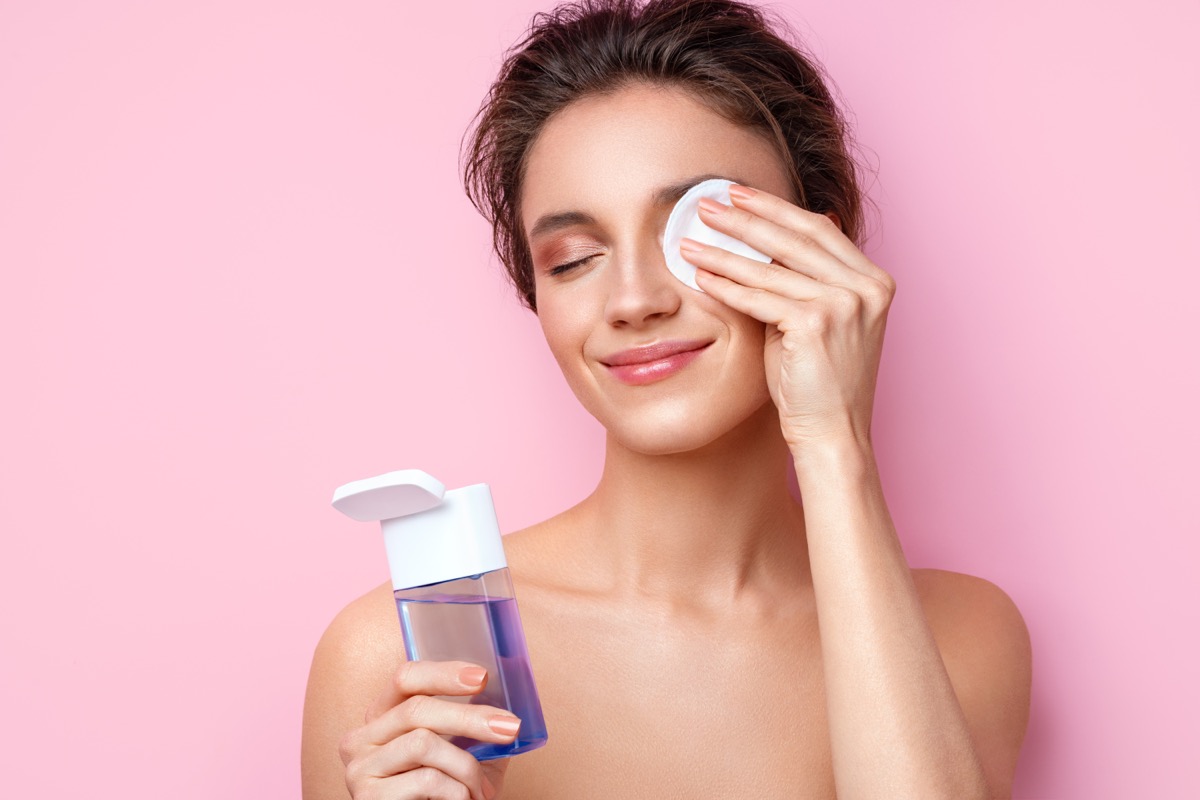
Makeup removal is one of the primary skincare goals micellar water was designed to address.
“It helps remove dyes and oily residue from makeup products quickly and easily, without the need for rigorous rubbing and without stripping or damaging even the most sensitive epidermal skin,” Aparovich says.
Since the skin around the eye area tends to be thinner and more prone to damage, many people say micellar water is their go-to product for gently removing waterproof mascara.
However, Aparovich notes that not all makeup, cosmetic products, and environmental impurities are as easily removed by the gentle skin cleanser.
“Some can leave a sticky, greasy, or oily mantle after being washed away with micellar water alone. As micelles are mild detergents, they can not always thoroughly remove thick makeup or heavy greasiness. Still, they do well in drawing out basic everyday makeup and dirt that accumulates on the skin’s surface throughout a typical day,” she says.
2. It’s Beneficial for All Skin Types
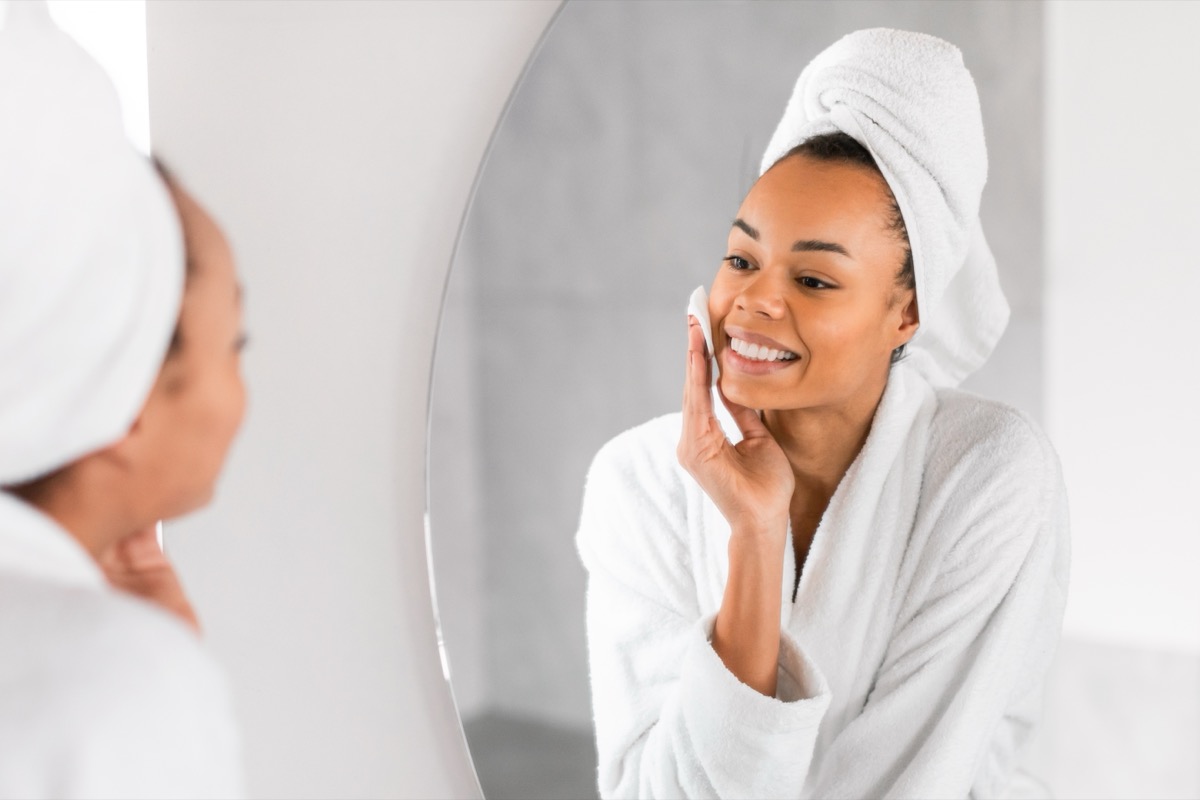
Made with mild surfactants that won’t irritate your skin, micellar water is beneficial for all skin types, including dry skin, oily skin, and sensitive skin.
“Overwashing dry and normal skin results in extensive transepidermal water loss, causing dryness, tightness, flakiness, and irritation,” says Aparovich. “Oily and combination skin responds to harsh surfactants with increased sebaceous glands activity to protect its moisture barrier from stripping.”
“Sensitive skin can be both dry and oily, but it’s also known to be easily compromised and reactive to cosmetics and physical factors, so a tender makeup remover and cleanser is crucial for maintaining its well-being,” she adds. “Micellar water doesn’t stress out the skin and helps avoid any listed extremums, leaving your skin clean and soothed.”
3. It Gets Your Skin Super Clean
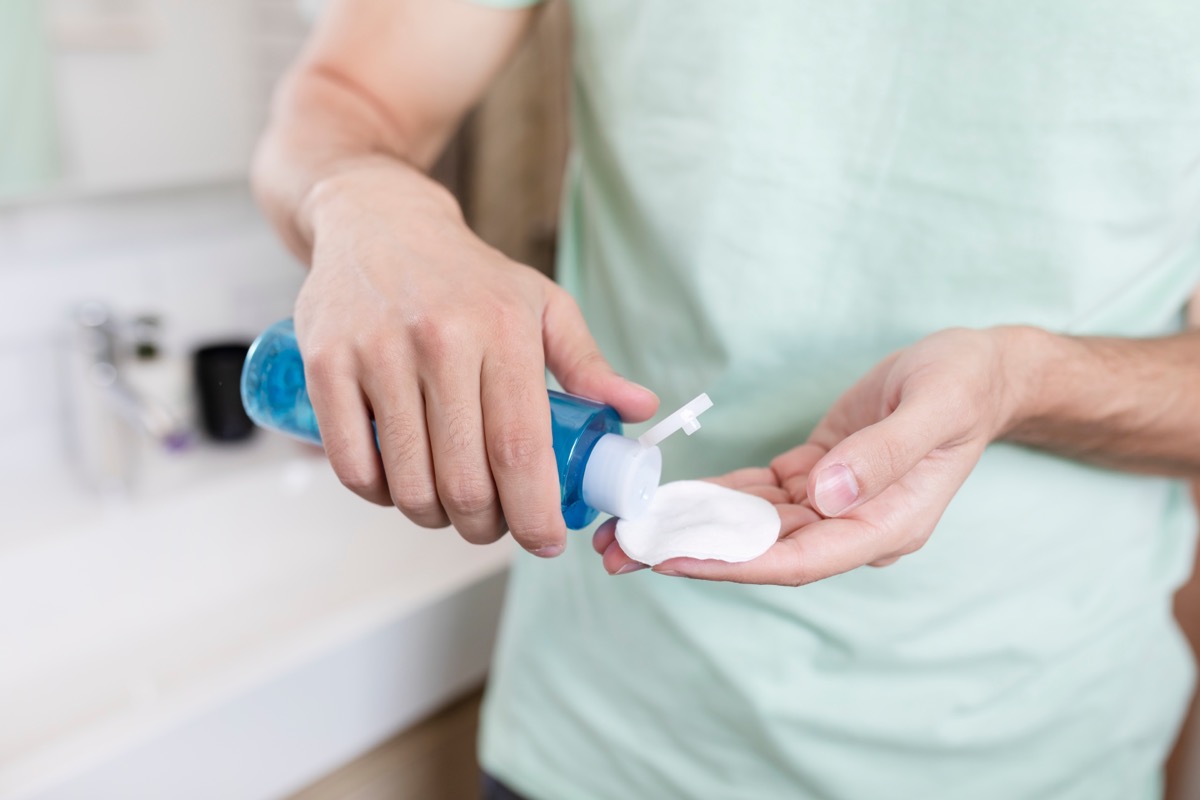
Micellar water will leave your skin feeling more moisturized than if you use a harsher cleanser, but the experts say it usually still gets your skin super clean.
“Micellar water was specially designed to wash off surface impurities, such as basic makeup, excess sebum, and daily grime. When applied to the skin, micelles perform magnet-like activity. They trap dirt and oils and pull them away from your skin, preventing the impurities from re-depositing and building up on the skin’s surface and clogging pores. Micellar water helps free your skin with gentle efficacy and minimal friction,” Aparovich says.
4. It Keeps Your Skin Hydrated

The experts note that it’s not just the ingredients found in micellar water that help to hydrate your skin, but also the ingredients that are missing: in particular, irritating alcohols that can dry out the skin and damage the skin barrier.
“Micelles’ gentle detergent activity promotes delicate cleansing, not stripping the skin of its natural oils or disrupting its moisture barrier. Glycerin is a humectant that attracts water molecules, helping the skin retain moisture and relieve dryness. Such a product formulation enables the skin to maintain its optimal hydration levels, reducing the risk of irritation and keeping it soft and supple after cleansing,” says Aparovich.
Lozina notes that this can lead to skin improvements in the longer term—restoring your skin’s balance without stripping it dry.
5. It Travels Well

This is also a cleansing solution that you can take with you anywhere.
“Micellar water is a must-have in a travel kit as it does not necessarily require rinsing and, therefore, access to running water,” Aparovich notes. “Well-formulated micellar water is produced with a balanced pH, which makes it a 3-in-1 solution to clear your skin on the go, helping to remove makeup, cleanse daily grime, and tone and refresh the skin, replenishing its water contents.”
RELATED: 8 Skincare Mistakes That Make You Look Older.
Micellar Water vs. Toner: What’s the Difference?
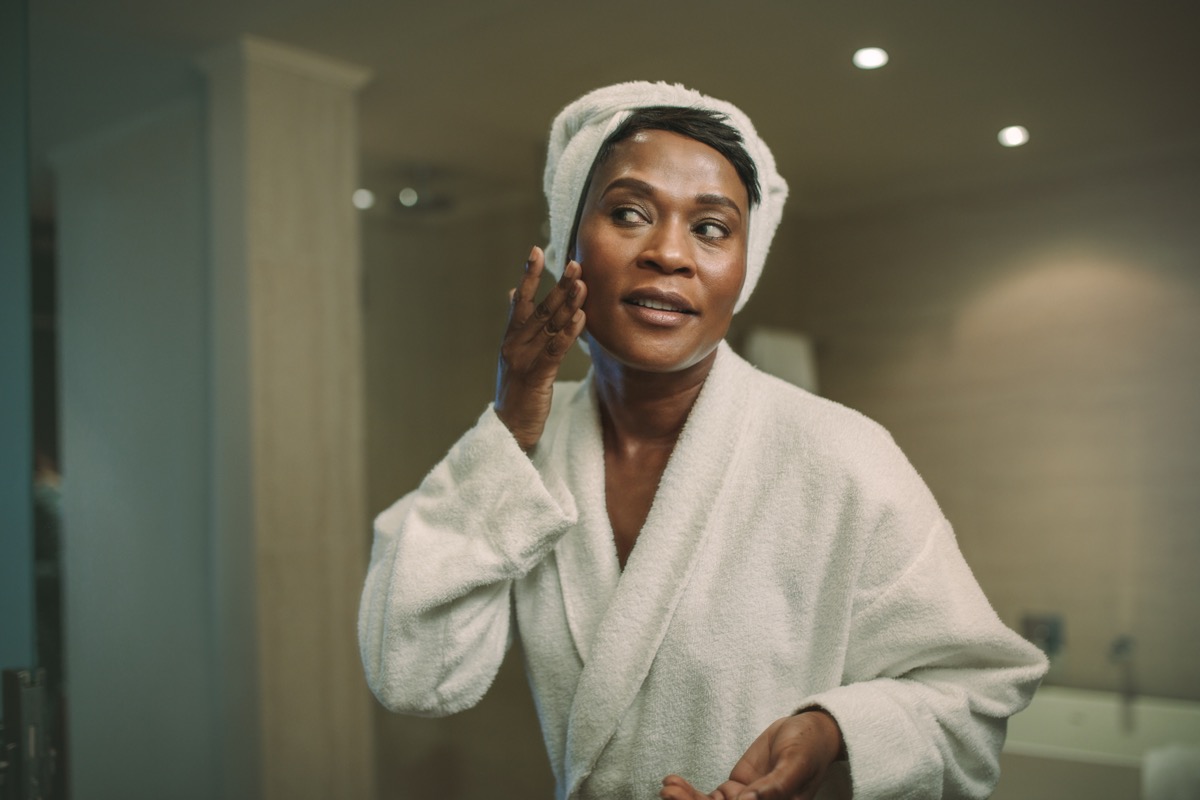
Micellar water and toner look similar and are applied using the same method, but the experts point out that there are differences between the two products.
“Toner tends to be astringent-based, which is alcohol- or alpha hydroxy acid-based, whereas micellar water is hydrating water with suspended oil molecules in it,” explains Lozina. “Micellar water is gentler on your skin, especially if you have sensitive skin.”
Aparovich adds that in addition to having different formulations, micellar water and toner are designed to address different skincare goals.
“Micellar water aims to cleanse, removing makeup, dirt, and sebum from the skin. Toners, on the other hand, focus on normalizing the skin’s pH after cleansing,” she shares. “Therefore, regardless of your skin type and cleansing routine, using a skin toner right after cleansing is crucial to maintaining the skin’s health.”
RELATED: 5 Reasons to Add Aloe Vera to Your Skincare Routine If You’re Over 50.
Are There Any Drawbacks to Using Micellar Water?
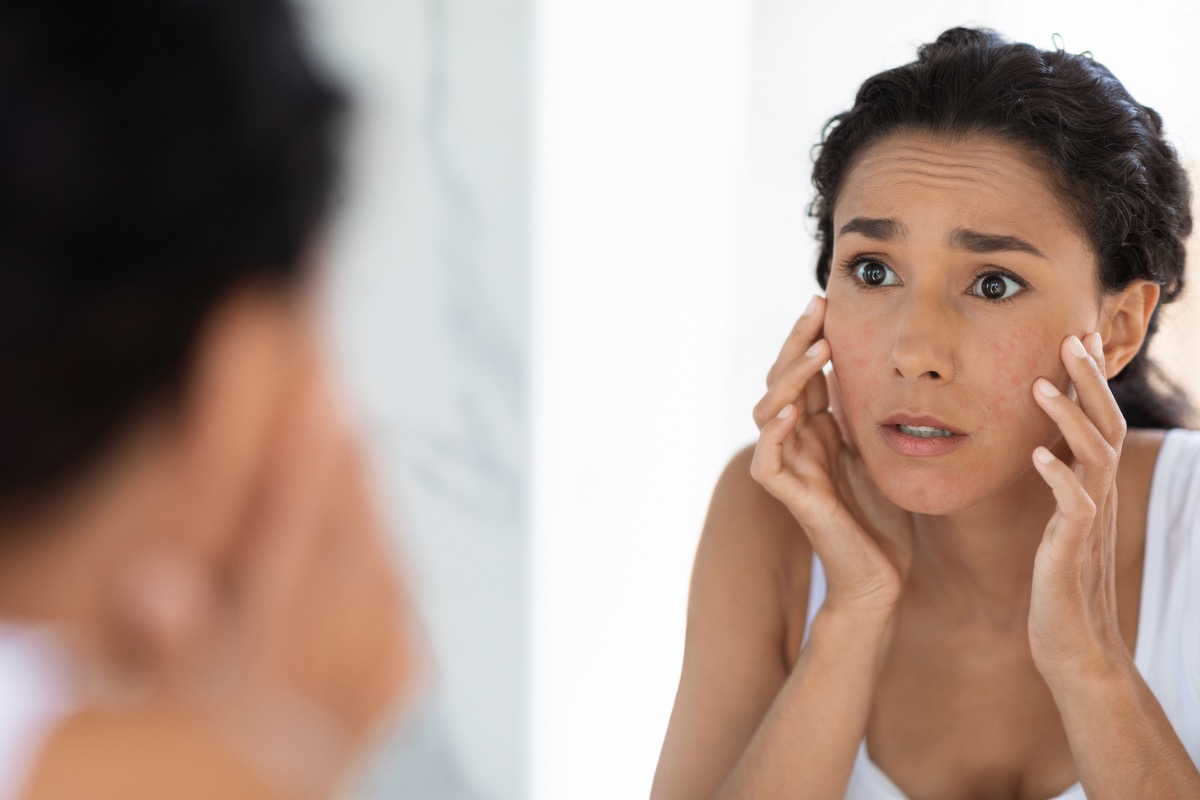
The biggest potential drawback is if micellar water provides inadequate cleansing. Aparovich notes that waterproof makeup and grime residues can then stagnate on the skin’s surface, provoking pore blockage, irritation, and inflammation. This is more likely in people with very oily skin.
“My general recommendation for people with oily and combination skin is to complete a cleansing step with a water-soluble foam or gel to ensure no unwanted residue remains and compromises your skin,” Aparovich tells Best Life.
“People with dry and normal skin can trust their sensations when deciding whether additional cleansing is needed,” she notes. “A water-soluble cleanser can be skipped if the skin feels clean and no stickiness occurs. If the skin appears not well-groomed and irritated, it’s most likely because micellar water is insufficient to remove all the dirty residue.”
She adds that although micellar water is formulated to be soft and gentle, it still contains detergent substances that can lead to skin irritation in people with very sensitive skin. “People with highly reactive skin should be cautious and rinse off the product immediately if any discomfort occurs,” the beauty expert says.